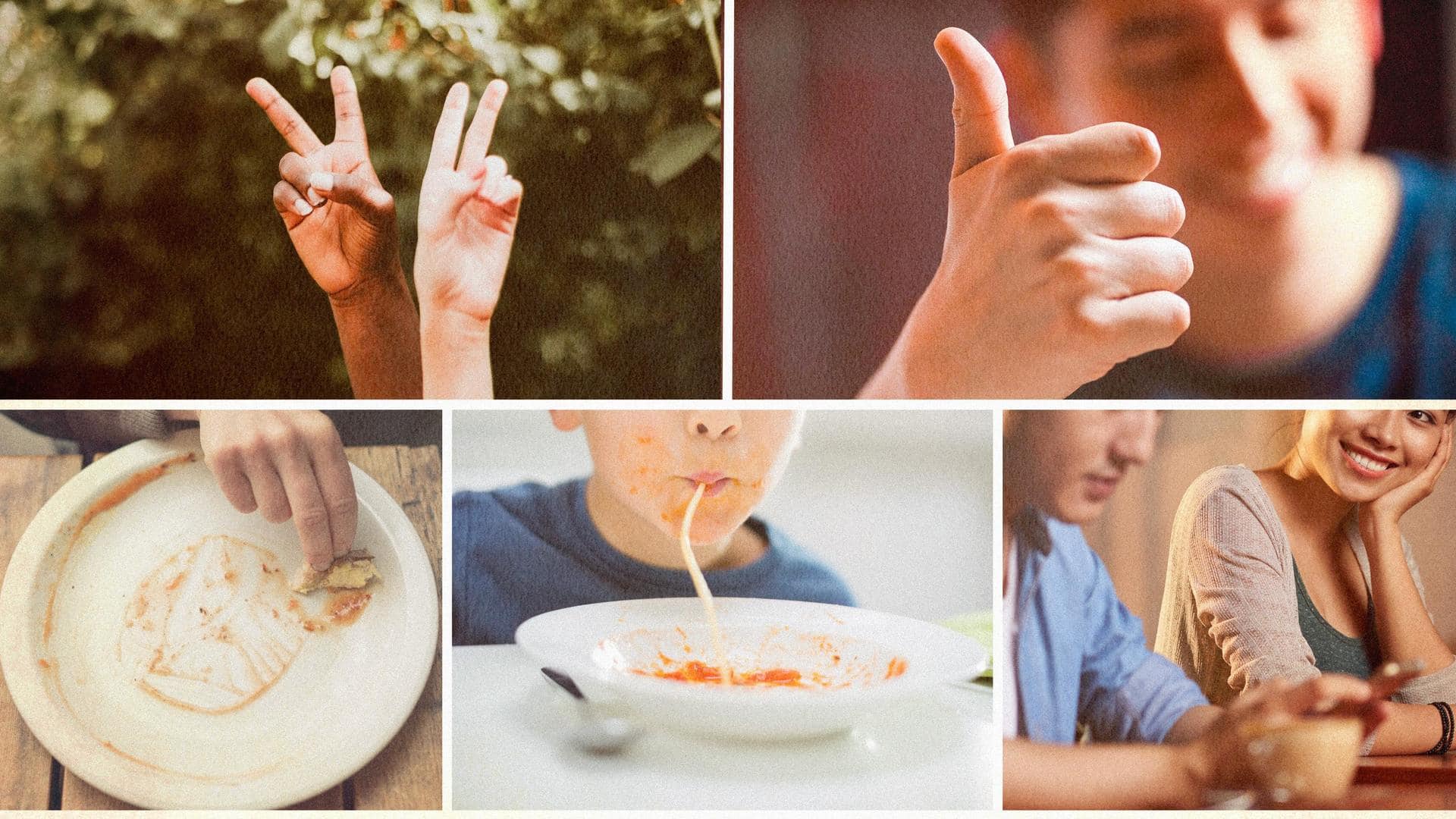
Common customs that are offensive in some countries
What's the story
Who knew that throwing a thumbs-up, smiling at strangers, or not wasting food on your plate can be considered rude and offensive in some parts of the world? So, when you go on your next vacation, make sure you are aware of the local customs to avoid embarrassment. Here are five common customs that are considered offensive in other parts of the world.
Victory sign
Peace sign
In Britain, making the backward peace sign, with your palm facing towards your face may provoke the ire of whom you are pointing it at. Commonly known as the "two fingers" or "the V sign," making such a gesture can be considered insulting or vulgar. It's best to avoid making the backward peace sign, especially in professional settings, to avoid any misunderstandings or offense.
Thumbs up
Thumbs up
The "thumbs up" gesture is widely recognized as a symbol of approval or support in many Western cultures. However, in some parts of the Middle East, Latin America, and western Africa it is considered rude or offensive. It is interpreted as an aggressive or dismissive gesture and can be perceived as a sign of disrespect, especially to the LGBTQ+ community.
Wasting food
Finishing everything on your plate
In countries including China, Russia, and Thailand leaving a small amount of food on your plate is considered a sign of respect for the hospitality and generosity of the host. Doing otherwise can be interpreted as a sign that the host did not provide enough food, or that the guests are still hungry. This can be considered as a slight against the host's hospitality.
Uncivilized
Slurping
In some Asian cultures, slurping is seen as a sign of appreciation for the food served and a way to enhance the flavor and enjoyment of the meal. On the contrary, in many Western cultures table manners dictate that eating should be quiet and graceful. In these cultures, slurping is often associated with being uncivilized or lacking self-control.
Fake
Smiling at strangers
Russian culture places a strong emphasis on stoicism, and emotions are often not displayed openly or frequently. They typically reserve smiling for close friends, family, and people they know well. In Russia, smiling at strangers can be perceived as insincere or fake. It is best to mind your own business when passing by strangers unless otherwise, you want to offend them.